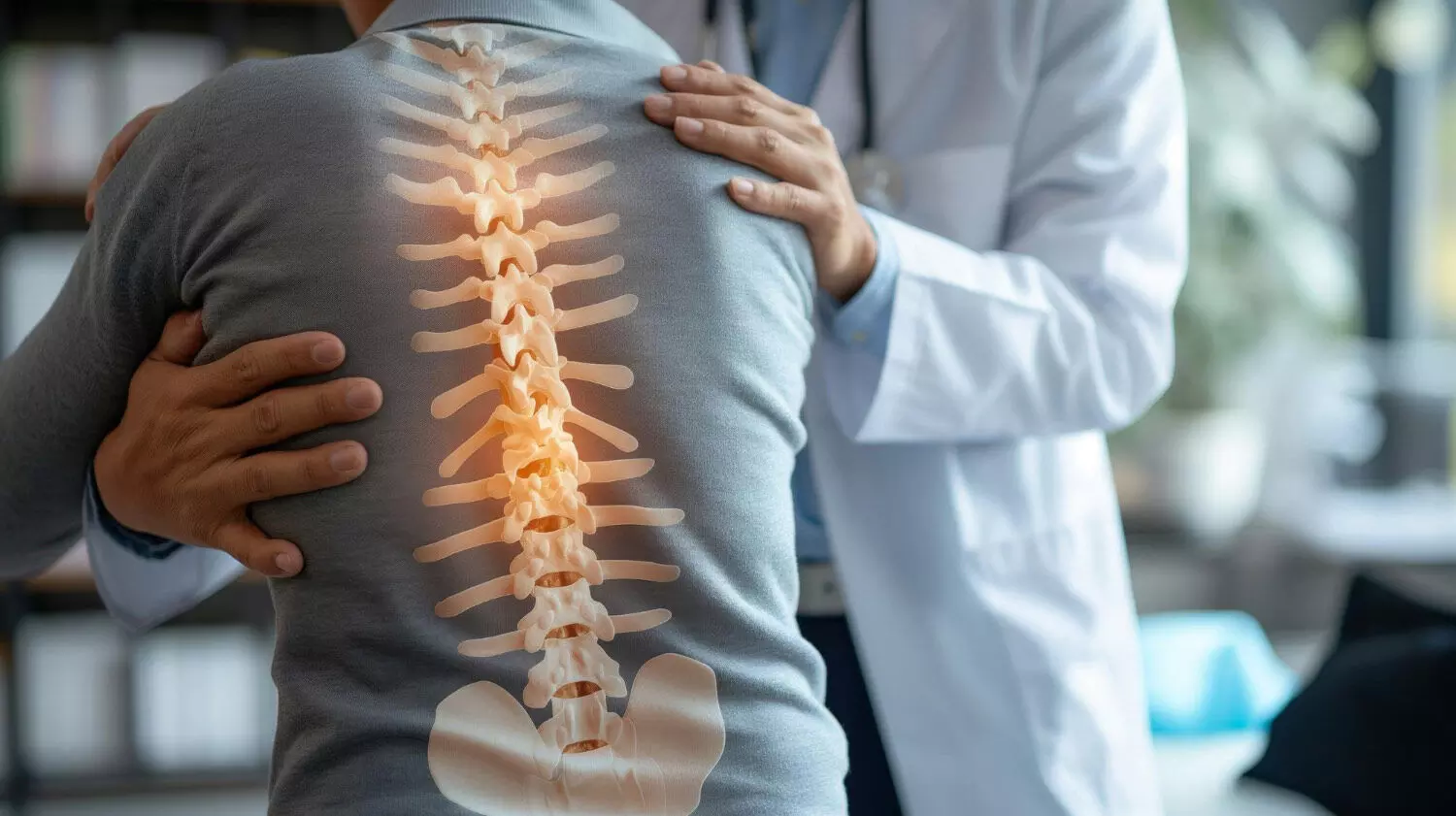Spine health matters: Hyderabad doctors highlight common problems and prevention tips
Spine wear, tear and neglect is a concern, Hyderabad experts explain how ageing affects mobility, balance
By - Anoushka Caroline Williams |
Hyderabad: As people age, the spine naturally undergoes wear and tear. Discs lose water content and elasticity, joints stiffen and supporting muscles weaken. These gradual changes can result in pain, poor posture, reduced flexibility and limited mobility.
Even small changes can have a large impact
Dr Vishnu Manyam, Consultant Minimally Invasive and Endoscopic Spine Surgeon at Renova Century Hospitals, speaking to NewsMeter, said, “The spine is central to every movement we make. In older adults, even small degenerative changes can have a large impact on independence and daily function.”
Maintaining spinal health, he says, is not just about preventing pain but also about preserving balance, mobility and overall quality of life.
Common spine problems in older adults
Several spine-related issues become more common with age:
• Degenerative Disc Disease: Discs lose cushioning, leading to stiffness or chronic back pain.
• Spinal Stenosis: The spinal canal narrows, compressing nerves and causing pain or weakness in the legs.
• Osteoporosis: Thinning bones make the spine vulnerable to compression fractures.
• Postural Imbalance: Weak back and core muscles cause stooping and instability.
Dr Manyam said, “When back or leg pain persists, it’s important not to ignore it. Many elderly patients delay evaluation, assuming pain is a normal part of ageing. But early diagnosis can prevent long-term disability.”
Core principles of spine care
1. Stay active
Gentle, regular movement is key. Activities like walking, swimming, yoga or tai chi maintain flexibility and strengthen core muscles, reducing strain on the back.
“Movement is medicine for the spine,” said Dr Manyam. “Even 30 minutes of low-impact activity a day can improve posture, stability and circulation.”
2. Maintain good posture
Sitting upright in supportive chairs, avoiding slouching and taking short breaks from prolonged sitting help reduce pressure on spinal structures.
3. Eat for bone health
A diet rich in calcium, vitamin D and protein supports bone density and spinal integrity. Foods such as milk, curd, leafy greens, nuts and lentils are beneficial.
4. Lift safely
When lifting objects, bend at the knees rather than the waist, keep the load close to the body and avoid twisting.
“Incorrect lifting is one of the most common causes of sudden back injury in seniors,” Dr Manyam cautioned.
5. Prevent falls
Falls are a major risk for spinal fractures in older adults. Keeping floors clutter-free, ensuring proper lighting, wearing supportive footwear and using mobility aids when needed can prevent injuries.
6. Get regular check-ups
Screening for osteoporosis and addressing chronic pain early can help detect issues before they progress.
“A simple bone density test can alert us to early bone loss, allowing timely treatment,” said Dr Manyam.
Medical and lifestyle support
A comprehensive spine care approach often combines medical guidance with lifestyle changes.
• Physical Therapy: Tailored exercises strengthen the core, improve posture, and restore flexibility.
• Pain Management: Mild medications, local injections or minimally invasive procedures can relieve nerve compression or fractures.
• Lifestyle Adjustments: Maintaining a healthy weight, quitting smoking and practising stress management techniques support spinal health.
• Proper Rest: Using a firm, supportive mattress helps maintain spinal alignment during sleep.
Dr Manyam emphasised, “Not all spine issues require major surgery. With early intervention, most elderly patients respond well to conservative or minimally invasive treatments.”
Preventive mindset
Spine health in older age is built over time. Regular activity, good nutrition and medical vigilance go a long way in keeping the back strong and functional.
“The goal is not just pain relief,” concluded Dr Manyam. “It’s about enabling seniors to move confidently, stay active, and live independently for as long as possible.”
Healthy habits and early medical attention can prevent many spine problems in older adults. A well-cared-for spine supports balance, mobility, and autonomy, the cornerstones of graceful ageing.